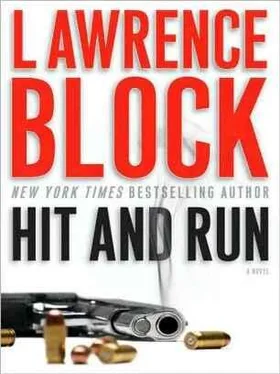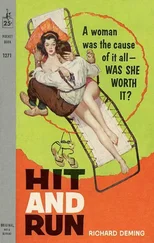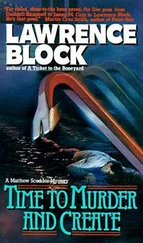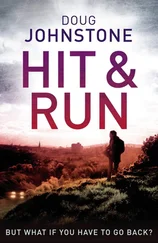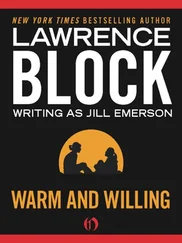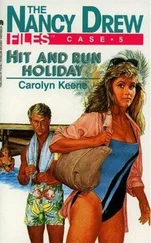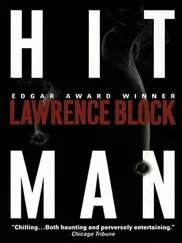Was it a good idea?
Probably not, he had to admit. The safest course of action would consist of doing what he’d been doing, keeping human contact to a bare minimum, spending his afternoons in darkened movie houses and his nights in motel rooms, getting his food from drive-up windows at fast-food outlets, and letting time pass with as little risk as possible. He knew how to do all of that, and there was no reason why he couldn’t go on doing it indefinitely.
Well, that was a stretch. He was still using Miller Remsen’s credit card to fill the Sentra’s gas tank, and any day now that might stop being a good idea. He wasn’t using much gas, because he wasn’t putting in any high-mileage days behind the wheel, and he still had most of a tank of gas left from the last fill-up, not long after he’d crossed from Tennessee into Mississippi. And maybe he ought to make that the last tank of gas the late Mr. Remsen bought for him.
It was hard to say, because for all he knew Remsen was still lying undiscovered behind his counter, while all his neighbors filled their gas tanks at his expense. Each issue of USA Today had a page of news from all over, including one item each day from each of the fifty states. The stories were presumably of local interest, so that if you were from Montana, say, on a business trip to Maryland, with no access to the Missoula Misery or the Kalispell Cat Box Liner , good old USA Today would keep you connected to all the news back home.
It didn’t really work for New York; anything halfway important that happened there was considered national news, but maybe it worked for Indiana. Keller had been checking every day, and had read brief items from all over the state, few of them remotely interesting, and none of them having to do with a man found dead in his ramshackle gas station. But that didn’t mean they hadn’t found him yet. Even by the standards of the news-from-all-over page, Keller had to admit it wasn’t much of a story.
Whether or not they’d found the body, Keller knew the safe way to play it was to ditch Remsen’s credit card. He could probably risk buying gas for cash, now that he wasn’t using too much of it, and who was to say another credit card wouldn’t come his way, as unexpectedly as Remsen’s had?
But the Sentra had plenty of gas in its tank for now, and it wasn’t burning any of it at the moment, and wouldn’t as long as it stayed parked. The more immediate question was whether he was running a risk by walking around New Orleans, and that was one he didn’t much want to ask himself because he knew he wasn’t going to like the answer.
Yes, it was a risk.
On the other hand, could he really drive all the way to New Orleans, then turn around and drive out again, only to sustain himself with prefabricated burgers and fries from yet another soul-deadening fast-food joint? That hadn’t been so bad in Tie Plant, Mississippi, or White Pine, Tennessee, where one’s choices were limited, but Keller had been in New Orleans a few times over the years, and he could still remember the beignets and chicory coffee at Café du Monde. And that was just the tip of the Tabasco bottle — could he really leave this city without a bowl of gumbo, or a plate of red beans and rice, or an oyster po’boy sandwich, or jambalaya, or crawfish étouffée, or any of the spectacular dishes you could get virtually anywhere in New Orleans, and nowhere else in the world?
Of course he could. He could walk away from all of it — or drive away, actually — but he wasn’t sure it would be a good idea.
Over the years, when he was working for the old man, he’d been dispatched on several occasions to deal with men who’d gone into hiding, generally as part of the government’s Witness Protection Program. Furnished with new identities and set up in a new environment, all these individuals had needed to do was keep a low profile and stay out of the limelight.
One of them was the man Keller had pursued to Roseburg, Oregon, and up until then he was a Witness Protection Program success story, a client who had adapted readily to his new life in the Pacific Northwest. He’d been an accountant originally, with no criminal background, and had wound up knowing too much and, when the feds leaned on him, telling what he knew. But he remained a mild-mannered accountant at heart, and he’d done just fine in Roseburg, running a quick-print franchise and mowing his front lawn every Saturday morning, and could have gone on that way forever if someone hadn’t happened to recognize him on an ill-advised family outing in San Francisco. But someone did, and Keller came calling, and that was that.
The others, however, weren’t constitutionally capable of settling forever into the quiet life the federal agents arranged for them. One couldn’t stay away from the racetrack, and another became inexplicably homesick for Elizabeth, New Jersey. Another got drunk periodically and told his business to strangers, and it didn’t take too long for him to pick the wrong stranger. And then there was the paragon who’d turned federal witness to get out from under a child molestation charge; spirited away to Hays, Kansas, he’d been picked up for loitering outside a school playground in Topeka. The feds managed to get the charges dropped, but not before the word got back east, and Keller was scouting around, looking for the guy, when he got arrested right there in Hays for willful abduction and unnatural sexual conduct with a minor. The old man shook his head and said something about doing the world a favor; then he called Keller back to New York, having arranged for a fellow prisoner to strangle the pervert in his cell.
Boredom was the enemy, and if the new life you created for yourself was unendurably monotonous, how could you stay with it?
So he’d treat himself to a day in New Orleans. A few hours, anyway. He wouldn’t get drunk and run his mouth, wouldn’t throw his money around at the racetrack or Harrah’s casino, wouldn’t haunt schoolyards or carouse on Bourbon Street. A couple of meals, a walk through streets shaded by live oaks. Then back in the car and back to the highway, and New Orleans, like everything else, could slip from the present into the past.
Knowing it couldn’t last, knowing one afternoon was all he’d have in New Orleans, Keller made the most of it. He walked down streets at random, taking in the older homes, some of them virtual mansions, others quite modest. They all looked good to him, and he did something he hadn’t done in years, let himself imagine what it would be like to live here, what sort of life he might lead if he bought one of these houses and spent the rest of his days in and around it. It wasn’t a terribly exotic fantasy, and a month ago he could have achieved it readily enough. But a month ago all he’d wanted to do was live out his days in New York, and that was out of the question, and so was this. His net worth was now limited to the cash in his pocket and five Swedish stamps he couldn’t sell, and he could no more afford to buy one of these houses than he could risk giving up the highway and settling down.
Still, it was something for his mind to play with while he walked these streets and looked at these houses. He’d want one with an upstairs porch, he decided. He could easily picture himself sitting in a white wooden rocking chair on just such a porch, looking out over the street, maybe sipping at a glass of — what?
Iced tea?
He pushed aside thoughts of Dot — her porch, her iced tea — and walked on. On St. Charles Avenue, where the streetcar used to run in the days before Katrina, he stopped at one small restaurant for a cup of coffee and a bowl of seafood gumbo. He sat in a booth, and the waitress who brought him his meal commented cheerfully on his Homer Simpson cap. After she’d left his table he took the cap off and set it on the seat beside him. He was tiring of Homer, and wondered if the cap had outlived its usefulness. Keller’s picture had stopped showing up on the newscasts, and the papers had tired of running it, so maybe his face was less likely now to set off alarms in people’s head. But they still noticed Homer, you couldn’t help noticing Homer, and after they’d noticed the vivid yellow embroidery, maybe their eyes would be drawn to a face they’d otherwise glide right past.
Читать дальше
